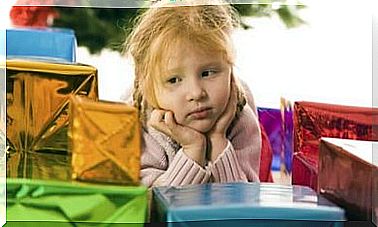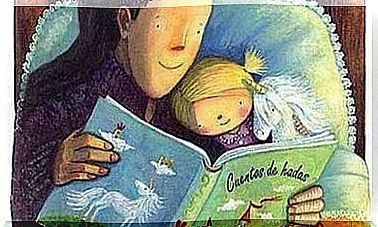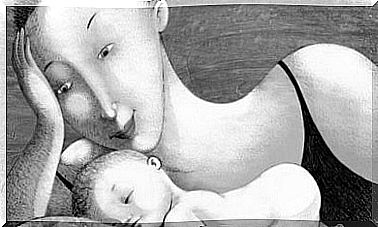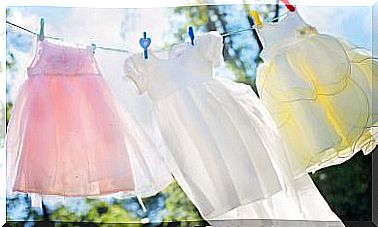Effects Of Mastitis In The Infant
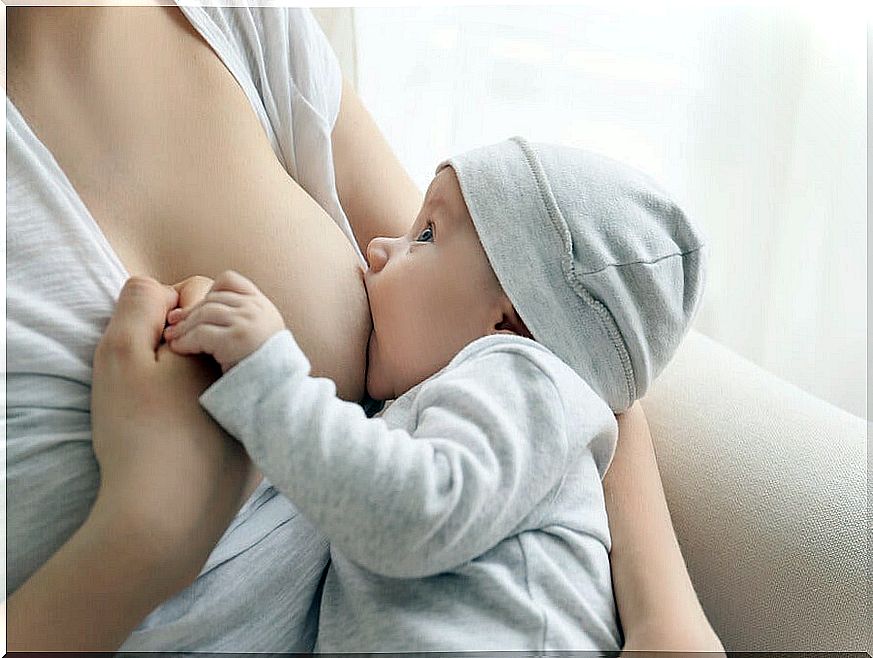
Mastitis is a fairly common condition that occurs in women while breastfeeding. The woman who suffers from it suffers and not only physically; In addition to acute pain, concern about the effects of mastitis on the infant is added. Sometimes this becomes an obsession that generates a lot of anxiety.
The mother is aware of the importance of breast milk for her baby. Therefore, anything that threatens the possibility of breastfeeding makes her nervous; consulting the doctor is always a safe measure.
Why does mastitis occur?
Mastitis is an inflammation of the mammary gland that appears from an infection. What are the causes of breasts becoming infected and causing mastitis?
- Sometimes, the breasts become infected by germs that penetrate through cracks in the nipple or small imperceptible sores. Due to the action of the baby when sucking, the breasts are injured; this is a very common cause of mastitis. Staphylococcus aureus is the most common agent in mastitis cases.
- There is a type of mastitis that is caused by bacteria from the skin that travel to the inside of the breasts.
- Other times, it is the breast milk itself that causes inflammation, by stagnating inside the ducts of the breast. This occurs when the woman produces a lot of milk and the baby takes a small amount; the breast does not empty completely. Milk remains stagnant and is the cause of infection and mastitis.
- Women’s low defenses are also a contributing factor. Stress and an unbalanced diet can cause a temporary drop in the immune system; women are therefore more vulnerable to infections.

What are the effects of mastitis on the infant?
In practice, this pathology can also have effects on the nursing child. Because mastitis is an infection, there are always harmful agents that are there and exert their damaging action.
Therefore, the milk that comes from a mastitic gland will have a higher concentration of these microbes. These germs are passed to the baby when he drinks milk.
Scientists do not find effects of mastitis in the infant that are linked to causes of disease. It is proven that children who for a few months were fed milk from breasts with mastitis had a normal and healthy development.
Although there are no health problems in the child when he ingests mastitic milk, there are discomforts for both the mother and him. The woman will feel intense pain when the child sucks; For his part, the baby will be upset because the milk does not come out as smoothly as always. You may notice a change in flavor, as mastitis is a bit more salty.
In cases of severe mastitis, the breast may become blocked and the milk will not come out. The so-called ‘pearl of milk’ is formed. This is one of the effects of mastitis in the infant that affects the little one the most, since he cannot suckle.
It is true that the child will go from being calm and relaxed to being irritable. The feedings will be longer and more frequent, because in each one you will extract less milk.
It is important to consult the doctor, because sometimes the continuity of breastfeeding with mastitis prevents the breast from healing. The professional has the elements to evaluate each situation and suggest a treatment. In addition, it will always tend to avoid weaning, which is only recommended in extreme cases.

Mastitis prevention
There are some prophylactic measures that help prevent mastitis:
- Healthy nutrition. It is advisable to consume foods rich in vitamins and minerals.
- Careful hygiene of the body.
- Emptying the breasts is important. The milk must be prevented from stagnating in the ducts; therefore, if the baby does not consume all the milk, the rest must be expressed.
- Accustom the child to fit well to the nipple.
- Don’t wear tight bras.
- Massage the breasts if you notice any hardening.
The conclusion of all the above is that the mother who breastfeeds her child should continue to do so despite the mastitis. The effects of mastitis in the infant will not be more than irritability and a little anger.




